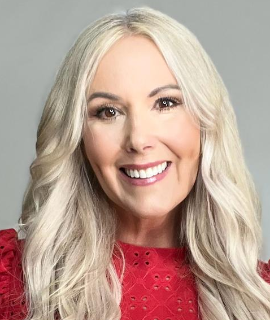Title : Revolutionizing bioplastics with yeast cell factories
Abstract:
Welcome to the future of sustainable food packaging! Integrated Lipid Biofuels introduces a groundbreaking innovation in the biotech world with our novel yeast cell factory, designed to produce biodegradable and compostable PHB bioplastic. This isn't just any bioplastic—it's born from mixed organic waste, proving that even cafeteria leftovers can transform into eco-friendly packaging solutions.
Why It Matters: Our innovative yeast cells are not picky eaters. They thrive on a diet of diverse biomass, turning what would otherwise be waste into higher yields of PHB bioplastic. Imagine the impact of converting organic waste from places like Washington State University cafeterias into valuable, earth-friendly materials!
The Science Behind the Innovation: This groundbreaking technology produces biopolymers designed to replace petroleum-based products, tackling the critical issue of plastic pollution. Our primary focus is on developing biodegradable films for packaging applications. Despite their high desirability and significant market potential, the production of biodegradable bioplastics is limited by the high cost of starch as a feedstock compared to the low cost of fossil-based options. ILB’s technology addresses this challenge by substituting starch with organic waste as feedstock, which not only slashes production costs but also provides a more sustainable solution for disposing of organic waste.
Limited Commercialization Challenges: Although the bacterial biopolymer poly(3-hydroxybutyrate), or PHB, has been known for over a century, its commercialization has been hampered by high production costs and suboptimal performance.
Engineered Yeast Cell Factory: Our solution lies in converting low-cost feedstocks such as food waste into biopolymers with high carbon efficiency. This is achieved through an integrated process using our highly efficient engineered yeast cell factory.
Multi-Layer Products: By diversifying polymer structures through process fine-tuning and pathway engineering, we enhance performance and use the resulting biopolymers to manufacture multi-layer products with the desired properties. This approach not only broadens the application of bioplastic materials but also aligns with our goal of creating sustainable, high-performance alternatives in the marketplace.
Key Benefits
- High PHB Production: Our yeast cell factory surpasses traditional methods, offering significantly higher PHB production. This means more bioplastic for less input, enhancing efficiency and sustainability.
- Versatile Biomass Utilization: Unlike other processes that require specific feedstocks, our yeast can work with various organic wastes. This flexibility reduces costs and promotes the use of readily available waste materials.
- Eco-Friendly Solution: The PHB bioplastic produced is both biodegradable and compostable, making it an ideal choice for reducing plastic pollution in our environment.
Join the Movement: Whether you're a sustainability enthusiast or a biotech innovator, this advancement opens new doors for creating greener, cleaner packaging solutions. Let's turn waste into a resource and lead the way in sustainable innovation.




